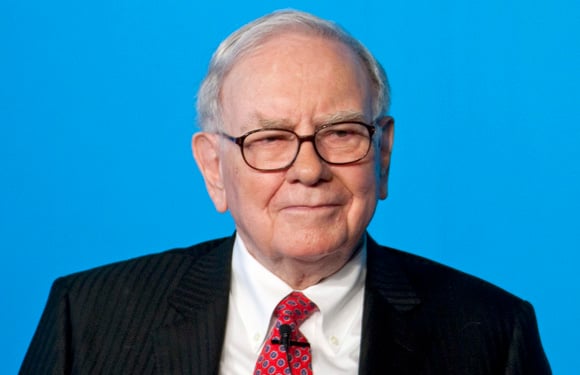Warren Buffett's Berkshire Hathaway Inc. is better positioned than rival property-casualty insurers to sidestep a decline in the value of fixed-income securities if interest rates rise, Moody's Investors Service said.
Berkshire's capital losses as a percentage of shareholder's equity would be the lowest among 27 property-casualty and multi- line insurers if interest rates climb 100 basis points, according to a Moody's report. The ratings firm projects an increase of at least that much over the next 12 months and as much as a 300-basis-point rise over the next two years.
“Investment diversification away from fixed-income assets is generally likely to be a benefit during a period of rising interest rates,” Moody's analysts, led by Paul Bauer, wrote in the report dated yesterday.
Buffett, 81, built Omaha, Nebraska-based Berkshire into a $200 billion firm through acquisitions and by accumulating equity stakes in companies such as Coca-Cola Co. and American Express Co. In February, he reiterated his company's strategy of buying companies and investing in stocks to increase shareholder returns. He shunned investments including bonds, mortgages and money-market funds.
“They are among the most dangerous of assets,” Buffett wrote in his annual letter to Berkshire shareholders published Feb. 25. “Over the past century these instruments have destroyed the purchasing power of investors in many countries, even as these holders continued to receive timely payments of interest and principal.”
RELATED ITEM So just how rich is Warren Buffett?
Moody's projected capital losses of about $60 billion for the property-casualty industry if rates rise by 150 basis points, or 1.5 percentage points. Insurers often hold fixed- income investments to maturity, which means they may not have to realize the losses, the ratings firm said.
Declines in Berkshire's $32 billion of bonds would be less than those of rivals, as a portion of shareholders' equity, in part because Buffett's firm has a shorter-duration portfolio and a smaller percentage of its investments dedicated to fixed- income, Bauer said. Horace Mann Educators Corp. (HMN), the seller of insurance to public school employees, would fare the worst if rates rise, because of its longer portfolio duration and higher allocation to bonds, Moody's said.
The analysis “is a view of our entire investment portfolio, of which the vast majority are life-company investments,” Paul Wappel, a spokesman for Springfield, Illinois-based Horace Mann, said by phone. “To draw conclusions about our property-and-casualty company from this report is misleading. Our P&C portfolio duration is generally consistent with the Moody's study.”
Longer Dated Liabilities
The ratings firm said in its report that life insurers have longer dated liabilities, “moderating the interest-rate risk of their investments.”
Buffett didn't immediately respond to a request for comment sent to an assistant, Carrie Kizer. Berkshire is the largest shareholder in Moody's Corp., the parent of the ratings firm, according to data compiled by Bloomberg. Moody's assigns its third-highest grade to Berkshire whileStandard & Poor's gives Buffett's firm its second-best rating.
Aside from capital losses, an increase in interest rates would benefit insurers by boosting investment income, Moody's said. Firms with a shorter duration would be better positioned to gain from the higher yields, said Bauer.
“For companies that don't have a lot of bond investments now, or they are just focused in short-term debt, they will be able to take advantage of higher rates easier than a company that has their investments locked up in long-term bonds,” he said today in a phone interview.
--Bloomberg News--







